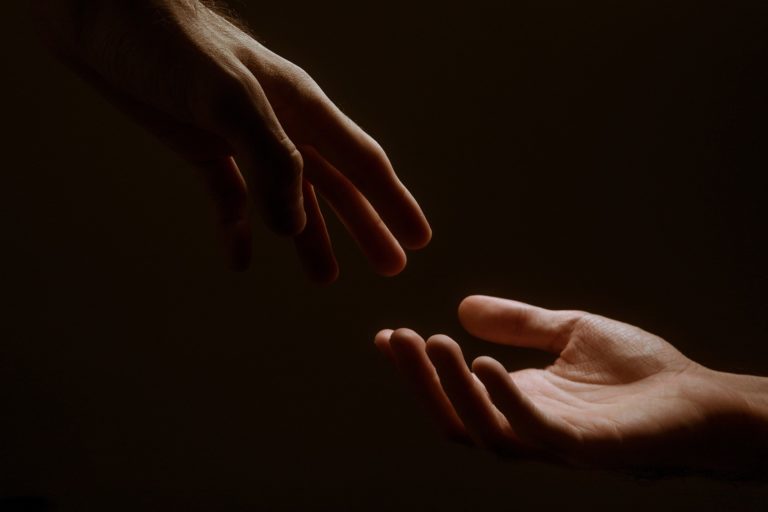Find A Therapist
Truthfully, it can be challenging to find a POC therapist.
Even in a place as diverse as NYC.
Finding a BIPOC therapist in reality is a matter of numbers. The mental health field of course is a reflection of our larger society. Unfortunately, there are simply far fewer therapists of color overall.
—David L. Eng, PhD and Shinhee Han, PhD, Racial Melancolia, Racial Dissociation
Psychotherapy as a tradition and set of practices indeed has been shaped by individualism, Western European philosophies and educational systems. Such theories and lenses left unexamined as a result contribute to many descendants of collectivist cultures—including many immigrants and refugees—feeling misunderstood. Worse, unfortunately, over-pathologized.
However, the mental health field is slowly learning from mistakes. With educational institutions trying to interrogate systemic biases and blind spots, it will take time, commitment and much effort. For now, this is a work-in-progress, and needless to say shall remain so.
Largely, cultural stigmas and familial beliefs often restrict people of interdependent cultural backgrounds from seeking professional support. At times, economic factors, not understanding how to navigate the healthcare system and frustrations with insurance are also common obstacles. Minimizing and dismissing the need for help also is a habit sometimes repeated across generations.
Quite often somatic symptoms in the form of shortness of breath, digestive issues, headaches, joint pain, and more, are only addressed through seeing a doctor. But, if symptoms do not meet medical criteria to warrant a diagnosis, unfortunately, symptoms get ignored, disregarded and often remain untreated.
What’s more, the word psychosomatic has a bad rap.
Psyche, meaning mind or soul, fused with soma, meaning body, suggests some kind of connection between the two. Certainly for much of the history of Western medicine, the term psychosomatic has been used dismissively as imaginary or unreal, since bringing the mind or soul too close to the body has threatened legitimacy, as if unscientific.
Generally speaking, in many collectivist cultures somatic descriptions are often a way to express feelings. Understandably, sometimes unresolved trauma—or simply not feeling heard or understood in prior treatment—also contributes to distrust and avoidance of help-seeking for both medical and mental health.

Find a therapist who you connect with…
Therapists are trained to work with people overall from many walks of life, backgrounds and life experiences. Some clients understandably seek a match by race or ethnicity. Meanwhile, other folks purposefully don’t, preferring a therapist of a different racial/cultural background than their own. Each may have distinct reasons and rationales. Either way, there can be both benefits and drawbacks. What’s most important is to feel enough of a common world view, or shared values.
Common ground between you and your therapist can be a solid starting point. However, how you feel responded to by your therapist is crucial. What gives you the sense that you are understood? Or not? If you do not feel understood, are you honest with your therapist about that? Does your therapist get defensive, or rather course-correct?
Is your therapist willing to not know and hear you out fully?
So as a person with an entirely different set of life experiences, maybe your therapist can’t completely understand what you’ve gone through. How do they convey an openness to learning about your unique experiences? Moreover, do you feel affirmed? Do you find that your therapist displays compassion towards you? How does your therapist convey warmth and care for you?
Finding a therapist, your therapist, can offer transformative experiences of feeling heard, understood, seen and known deeply. A trusting relationship with a therapist can offer corrective experiences, perspectives and insights. May the therapist who you choose, be an important guide to you through several chapters of your life as you grow and evolve.
Find Your Therapist
Therapists are trained in many different ways, and psychotherapy approaches are wide ranging. With so many options, how do you find a therapist who is right for you?
Sometimes you might hear that a friend really likes their therapist. Would your friend mind sharing their contact information? Of course, a word of mouth recommendation is strong. However, you’ll also want to feel comfortable enough to speak candidly with your therapist about any issue. Asking your friend for referrals to a trusted colleague of their therapist eliminates any potential conflicts of interest.
You may be considering factors like cost, location, schedules etc… all important practical considerations. Because you will likely entrust your therapist with thoughts and issues that you may, or may not, discuss with anyone else in your life…
Most important, who do you want to confide in?
In addition to training and background, therapists have different personalities, life experiences and more— informing distinct ways to practice. Some therapists remain quiet and make rare comments or interpretations, attempting overall to provide a “blank slate.” Others are more willing to include themselves and disclose depending on both therapeutic orientation and personal style.

Do you have a sense of the style you’d like your therapist to have?
For many who identify as BIPOC, and for descendants of collectivist cultures, a therapist who is active, engages in dialogue and inquiry—who also offers thought-provoking feedback—often feels more productive.
With so many considerations, it may take talking with a few potential therapists before you settle on working with one. Rather than putting a lot of pressure on a first meeting, I like to recommend at least 3-5 sessions to get a feel for one another. This way, both client and practitioner have a chance to see how the relationship is developing.
As the relationship with your therapist evolves, you may find that you address your initial goals. In time, you may feel greater trust, as well as seen and understood more fully. The process will likely reveal new areas that need your attention. This is to be expected with engaging a process of growth and change. Therapy can be a potent, entirely life-altering experience where you have a witness and supportive ally through different seasons and stages of your life.
- BIPOC Resources
- Asian Mental Health Collective
- Black Therapists Rock
- Bridges Mental Health Asian Pacific Islander & Desi Directory
- Clinicians of Color
- Inclusive Therapists
- Latinx Therapy Resources
- Manhattan Alternative
- MCM Collaborative
- Melanin and Mental Health
- NYC Affirmative Psychotherapy
- QPOC Therapist Directory
- Therapists of Color Directory
- Trauma-informed Resources
- Attachment Focused EMDR Therapist Directory
- Co-regulating Touch Directory
- EMDRIA Therapist Directory
- Generative Somatics Directory
- Institute for Creative Mindfulness EMDR Graduates
- Institute for Contemporary Psychotherapy Trauma Studies Center
- National Institute for the Psychotherapies Trauma Treatment Center
- Sensorimotor Psychotherapy Directory
- Somatic Experiencing Directory
- Sliding Scale / Low-fee Clinics
- Ackerman Institute
- Blanton-Peale Counseling
- The LGBT Community Center
- The Fifth Ave Counseling Center
- Gestalt Associates For Psychotherapy
- Gestalt Center For Psychotherapy and Training
- Institute for Contemporary Psychotherapy
- Manhattan Institute For Psychoanalysis
- National Institute for the Psychotherapies
- Training Institute For Mental Health
Of course, this is not an exhaustive list. These resources are provided only for informational purposes and as a courtesy to further support your particular search.
With a deep commitment to seeing more therapists of color in the mental health field, Michele L. Kong, CPC, SEP, LP contributes a percentage of net profits, energy and time to volunteer supporting the professional development of other BIPOC practitioners learning trauma-informed, somatic approaches. In so doing, the aim is to create more sensitivity to the diverse needs of mental health seekers, provide refuge and solace, as well as to heal our communities at large.





